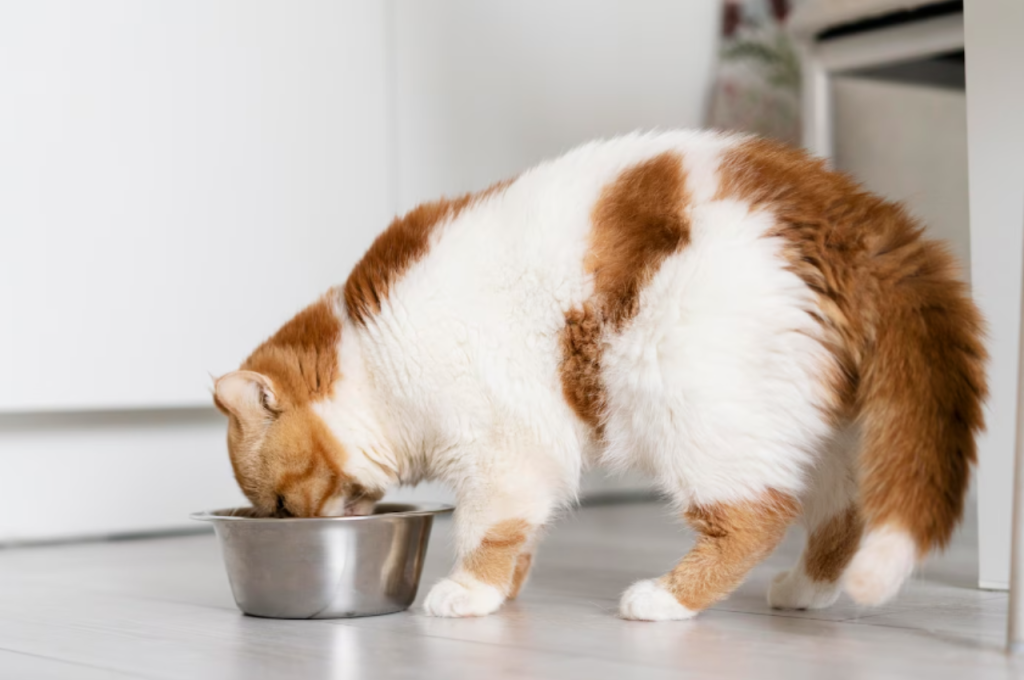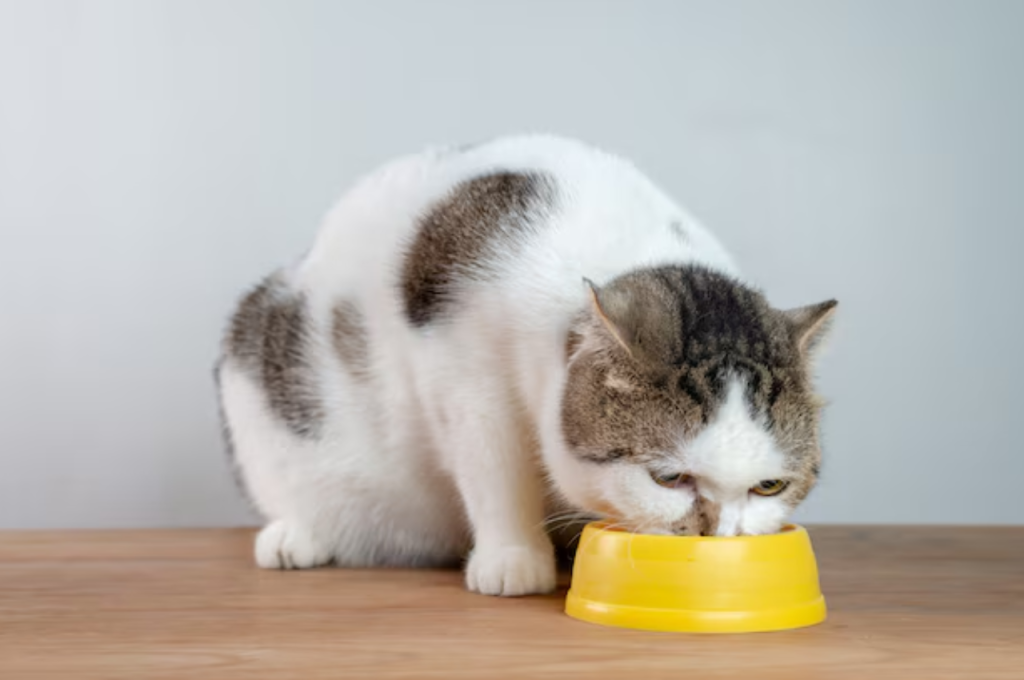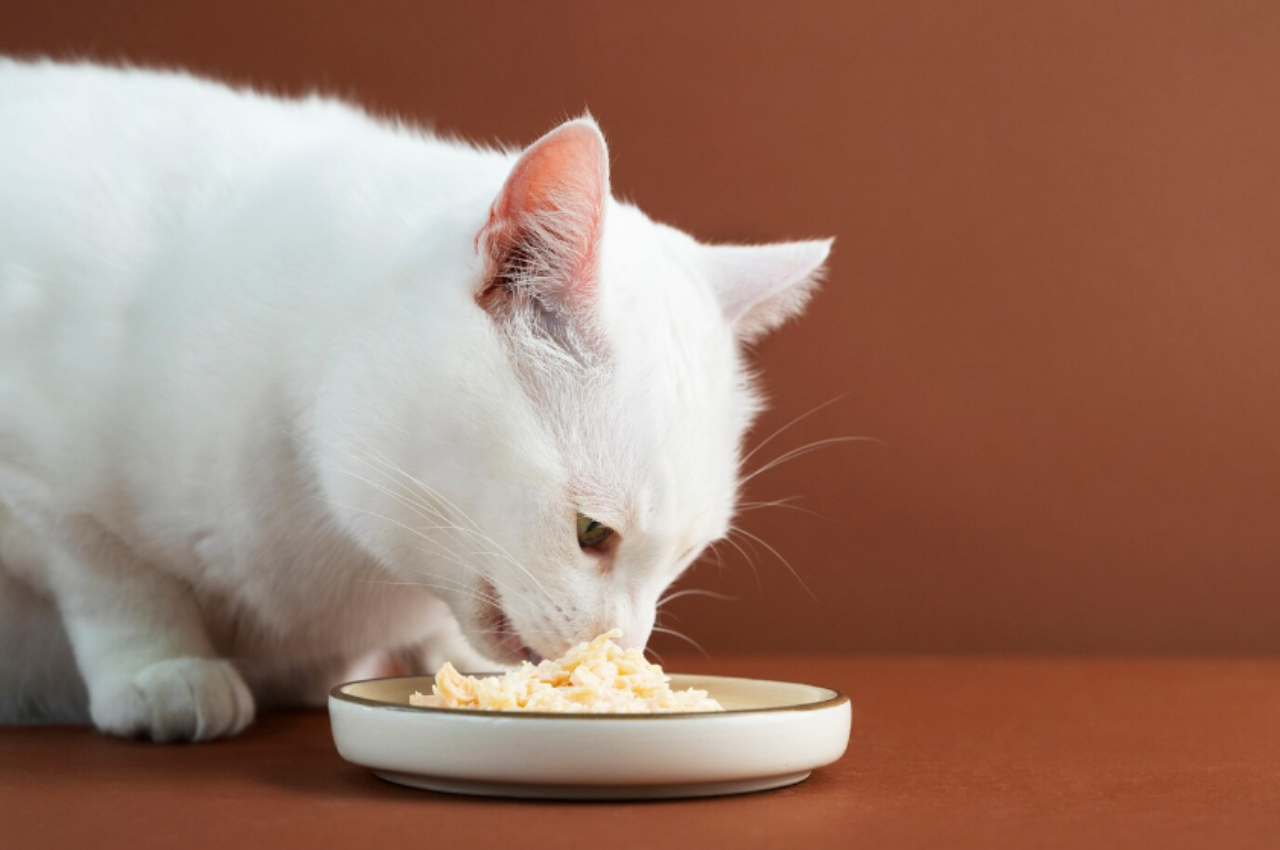Yes, salt can be harmful to cats as it can cause sodium ion poisoning. Excessive salt intake can lead to dehydration and other health issues in cats.
Cats have a low salt tolerance compared to humans, so it’s crucial to limit their intake. High-salt foods like cured meats and salty snacks should be avoided. Always consult a veterinarian before introducing new foods to your cat’s diet. Proper nutrition is essential for your feline friend’s well-being.
Opt for cat-friendly treats and foods to ensure their health and happiness. It’s important to be mindful of their diet and keep salt consumption in check for their overall health.
The Role of Salt in A Cat’s Diet
Understanding the role of salt in a cat’s diet is essential for ensuring their overall health and well-being. While salt is an essential nutrient that plays a vital role in various physiological functions, including nerve transmission and muscle function, excessive salt intake can pose significant health risks to cats.

The Importance of Salt in A Cat’s Body
Discover the significance of salt in a cat’s body, exploring its vital role in maintaining proper physiological functions. Low salt intake can lead to health issues like dehydration and muscle cramps.
The Dangers of Excessive Salt Consumption
Excessive salt consumption can pose serious health risks to our feline companions. Being obligate carnivores, cats have a low tolerance for salt compared to other animals. Therefore, it is crucial to be mindful of the amount of salt they consume to prevent potential health issues.
Impact on Kidney Function
High salt intake can strain a cat’s kidneys, leading to decreased kidney function over time. Kidneys play a vital role in filtering waste from the blood, and excessive salt can put unnecessary stress on these organs.
Increased Risk of Hypertension
Salt can elevate blood pressure, increasing the risk of hypertension in cats. This can lead to heart issues and other cardiovascular problems.
Dehydration and Electrolyte Imbalance
Excessive salt intake can cause dehydration in cats, as their bodies work to eliminate the excess salt through urination. This can also result in an imbalance of electrolytes, which are essential for proper nerve and muscle function.
Hidden Sources of Salt in A Cat’s Diet
When it comes to our feline friends’ nutrition, salt is often a concern. While it’s true that cats require some amount of sodium in their diet, excessive salt consumption can lead to health issues like high blood pressure and kidney problems. To ensure your cat’s well-being, it’s important to be aware of the hidden sources of salt in their diet.
Commercial Cat Food
Many cat owners rely on commercial cat food as their primary source of nutrition for their pets. While these convenient options may be formulated to meet the nutritional needs of cats, some brands may contain high levels of sodium. It’s essential to carefully read the labels when selecting cat food and choose options with lower salt content.
Here are a few tips when it comes to choosing commercial cat food:
- Opt for cat food labeled as “low sodium” or “reduced sodium” whenever possible.
- Avoid brands that list salt or sodium as one of the main ingredients.
- Compare different brands and select options that have lower sodium content per serving.
Treats and Snacks
Treats and snacks are meant to be enjoyed by our furry companions. However, they can also be a hidden source of salt in a cat’s diet. It’s important to keep track of the salt content in the treats and snacks you offer your cat to prevent excessive sodium intake.
Consider the following when it comes to cat treats and snacks:
- Look for treats specifically formulated for cats with reduced salt content.
- Avoid giving your cat human snacks, as they often contain high levels of salt and can be detrimental to their health.
- Make homemade treats using natural ingredients, ensuring low or no added salt.
Human Foods to Avoid
While it can be tempting to share our meals with our cats, certain human foods can pose a salt hazard to felines. These foods may contain hidden sources of salt or have seasonings that are harmful to their health. It’s crucial to understand which human foods to avoid feeding your cat altogether.
Here are some common human foods to avoid giving to cats:
| Foods to Avoid | Reasons |
| Processed meats (ham, bacon, deli meats) | High in sodium and often contain seasonings |
| Canned soups or broths | High sodium content not suitable for cats |
| Cheese and other dairy products | Typically high in salt and can cause digestive issues in cats |
| Snack foods (chips, pretzels) | Loaded with salt and other additives harmful to cats |
By being aware of the hidden sources of salt in your cat’s diet and making informed choices when it comes to their food and treats, you can help maintain their overall health and well-being.
Recognizing the Symptoms of Salt Toxicity
Identifying the signs of salt poisoning in cats is crucial. Symptoms may include excessive thirst and urination, vomiting, and lethargy. Monitoring sodium intake ensures your feline friend stays healthy and avoids potential issues related to salt toxicity.

Recognizing the Symptoms of Salt Toxicity Excessive Thirst and Urination Excessive salt consumption can lead to increased thirst and urination in cats. Watch for frequent trips to the water bowl and litter box. Loss of Appetite A cat suffering from salt toxicity may exhibit a sudden lack of interest in eating. This could be a symptom of a larger issue and should be taken seriously. Vomiting and Diarrhea If your cat starts vomiting or experiencing diarrhea, it could be indicative of salt toxicity. Keep an eye on any changes in their digestive habits. Lethargy and Weakness Salt toxicity can cause your cat to become lethargic and weak. Pay attention to any changes in their energy levels and seek help if you notice a significant decline.
Ensuring your cat’s well-being depends on being able to recognize these symptoms early. If you notice any of these signs, it’s crucial to seek veterinary attention promptly to prevent further complications.
Preventing Salt-related Health Issues
Excessive salt intake can lead to various health complications for your feline friend. It is crucial to take necessary precautions to ensure that your cat’s diet is well-balanced and low in sodium. Here are some essential ways to prevent salt-related health issues in your cat:
Reading Cat Food Labels
When selecting cat food, pay attention to the sodium content listed on the nutritional label. Opt for low-sodium food options to decrease the risk of salt-related health problems. Look for ingredients such as “seafood meal” or “chicken meal,” which are typically lower in salt than other types of meat.
Offering A Balanced and Nutritious Diet
- Ensure that your cat’s diet consists of high-quality, nutrient-rich foods. This will help maintain a healthy balance and reduce the need for additional salt in their diet.
- Incorporate fresh fruits and vegetables, as they provide essential nutrients and help reduce the reliance on high-sodium cat food.
Limiting High-salt Treats
Avoid providing excessive amounts of salty treats to your cat. Opt for low-sodium alternatives or homemade treats to control their sodium intake. Consider offering small portions to prevent overconsumption.
Avoiding Table Scraps
- Refrain from feeding your cat table scraps, as they often contain high levels of salt. This can lead to health issues if consumed regularly.
- Ensure your family members understand the importance of avoiding feeding the cat from the table.
Low-sodium Diet Options for Cats
Just like humans, cats can also benefit from a low-sodium diet. It is essential to keep their sodium intake in check to avoid potential health issues. In this section, we will explore some practical options for incorporating a low-sodium diet into your cat’s feeding routine.
Consulting With A Veterinarian
If you are considering shifting your cat to a low-sodium diet, it is crucial to consult with a veterinarian first. A professional assessment will help determine the right sodium levels suitable for your cat’s specific needs and any underlying health conditions they might have. The veterinarian can guide you through the process and recommend the ideal dietary changes.
Homemade Cat Food Recipes
Preparing homemade cat food is an excellent way to ensure your feline friend receives a low-sodium diet. By controlling the ingredients, you have more control over the sodium levels in your meals. Below, we present a simple homemade cat food recipe:
| Ingredients | Instructions |
| 1 cup of cooked chicken (shredded)¼ cup of cooked rice¼ cup of cooked peas1 tablespoon of fish oil | Mix all the ingredients in a bowl.Ensure proper blending and consistency.Divide the mixture into portions suitable for your cat’s size and age.Refrigerate or freeze the portions for later use. |
Commercial Low-sodium Cat Foods
For cat owners seeking convenient options, there are commercial low-sodium cat foods available in the market. These specialized formulations are designed to provide balanced nutrition while keeping sodium levels at a minimum. When selecting a commercial low-sodium cat food, remember to carefully read the labels and opt for reputable brands that prioritize your cat’s well-being.

Frequently Asked Questions of Is Salt Bad for Cat?
In this section, we will address common questions regarding is salt bad for cats:
1. Is salt harmful to cats?
Excessive salt can be harmful to cats, leading to dehydration and electrolyte imbalance. It’s crucial to monitor your cat’s salt intake and avoid feeding them salty foods. Always consult with your veterinarian for guidance on your cat’s dietary needs.
2. Can cats consume foods with a little salt?
Cats can tolerate small amounts of salt in their diet. However, it’s essential to limit their intake as excessive salt can lead to health issues. When offering salty foods, ensure it’s in moderation and balanced with their overall diet.
3. What are the dangers of a high-salt diet for cats?
A high-salt diet can contribute to health problems in cats, such as kidney issues, hypertension, and dehydration. It’s crucial to monitor the salt content in your cat’s food and opt for low-sodium options to promote their well-being.
4. How to recognize if a cat has consumed too much salt?
Signs of excessive salt intake in cats may include increased thirst, frequent urination, vomiting, and diarrhea. If you notice these symptoms, it’s important to seek veterinary care promptly to address any potential health concerns related to salt consumption.
Conclusion
As we wrap up this discussion, it’s clear that excessive salt intake can have detrimental effects on cats. While small amounts of salt are necessary for their bodily functions, too much can lead to serious health issues. Cat owners need to monitor their pet’s sodium consumption and opt for low-sodium alternatives when necessary.
By doing so, we can ensure our feline friends live a long and healthy life.
